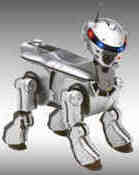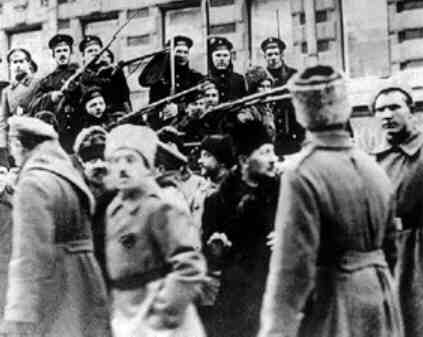2003 Lunar eclipse visible in the Americas with umbra from moonrise (in El Paso TX) at 17:07 to 20:04 MST (09 Nov 00:07 to 03:04 UT) and totality from 18:06 to to 18:30 MST (01:06 to 01:30 UT).
2002 At its meeting 4644, the UN Security Council adopts, 15-0, Resolution 1441, which gives Iraq “a final opportunity to comply with its disarmament obligations”, or else!
2002 At 09:00 in Peking's Great Hall of the People the 2114 delegates begin the 16th quinquennal Communist Party Congress. Jiang Zemin, 76 (who would resign in favor of Hu Jintao, 59, before the end of the Congress 5 days later, as Secretary General of the Party, and, on 15 March 2003, as President of China), gives a 90-minute speech outlining plans for more capitalism (but not democracy).
 2001
The European Central Bank cuts its main interest rate, the refinancing rate,
from 3.75% to 3.25%. This follows the US Federal Reserve's rate reduction
of 06 November 2001.
2001
The European Central Bank cuts its main interest rate, the refinancing rate,
from 3.75% to 3.25%. This follows the US Federal Reserve's rate reduction
of 06 November 2001. 2001 The Journal Nature publishes a study according to which sheep recognize faces (up to at least 50) and remember them for at least 2 years. Also: sheep reared by goats (and vice-versa) act according to their foster species.
2001 Myanmar's ruling military announces that it has captured a “white” 1.8-meter-high, 8-year-old bull elephant [photo >] at Ahtetnanya, Rathedaung Township, Rakhine State, in the western part of Myanmar during the third week of October 2001.Its skin is white only in the sense that some people's skin is said to be white. It is whitish-pink in color in the rain and it changes to moderate russet in cold sunny weather. A white elephant brings peace, stability and prosperity to the nation, prevents all hazards and dangers, and ensures that the country enjoys bumper food harvests. The elephant is being brought to the capital Yangon (formerly Rangoon). The military has ruled Myanmar (formerly Burma) since taking power in 1962. The country has been isolated by most Western nations due to widespread human rights abuses and the suppression of the pro-democracy opposition. Myanmar's devastated economy is starved of foreign capital. — MORE.
 2001
Sony presents its latest Aibo, the
220, now less dog-like and more robot-like [< image].
It will sell for $1500. In addition Sony wants to sell software, such as
the $150 Navigator~2, which connects the robot by wireless local area network
to a personal computer allowing the owner to control its movements and see
on a monitor visual images shot through the digital camera on the robot's
nose. But Sony heavy-handedly forced the shut-down of the AiboHack
[= AiboPet] site which
provided free Aibo software.
2001
Sony presents its latest Aibo, the
220, now less dog-like and more robot-like [< image].
It will sell for $1500. In addition Sony wants to sell software, such as
the $150 Navigator~2, which connects the robot by wireless local area network
to a personal computer allowing the owner to control its movements and see
on a monitor visual images shot through the digital camera on the robot's
nose. But Sony heavy-handedly forced the shut-down of the AiboHack
[= AiboPet] site which
provided free Aibo software.2000 In the US, TV and radio broadcasters go into "time-filling mode" in reporting the previous day's election, because they cannot announce whether Bush or Gore has won the presidency (it depends on the Florida results, which are subject to a recount that will take days and involve the Supreme Court of the state and of the US), or even whether the Senate will be split 50-50 or have a Republican majority of 1 or 2 (it depends on recounts in Oregon and Michigan). — Early in the day, Vice President Al Gore telephones Texas Governor George W. Bush to concede, but calls back about an hour later to retract his concession.
2000 In China, Deputy Mayor Lan Fu of Xiamen in Fujian province; Xiamen Customs chief, Yang Qianxian, and Zhuang Rushun, deputy head of Public Security for Fujian, are among 11 persons condemned to death for their participation in a smuggling ring (made profitable by China's high import duties). Another 3 get suspended death sentences, 12 life imprisonment, and 58 prison for various times.
2000 Special counsel John C. Danforth releases his final report on the Waco wackos absolving the government of wrongdoing in the 1993 siege at the Branch Davidian compound.
1999 Russian troops forge ahead in Chechnya (CNN)
1998 El ex teniente coronel Hugo Rafael Chávez Frías, que en 1992 encabezó un golpe de Estado, se proclama vencedor de las elecciones legislativas y regionales celebradas en Venezuela.
1997 Se inicia en China la construcción de la presa de las Tres Gargantas, el mayor proyecto hidroeléctrico del mundo.
1997 Jefes de Estado y de Gobierno de Latinoamérica, España y Portugal se reúnen en la VII Cumbre Iberoamericana celebrada en Isla Margarita (Venezuela), en la que rechazaron la Ley Helms-Burton y apoyaron la creación de la Unión Centroamericana.
1996 Newspapers report that the assets of the CEO of Systems of Excellence, Inc. have been seized after the Securities and Exchange Commission accused him of trying to manipulate the company's stock price over the Internet. The SEC alleged that the executive issued false press releases and bribed an electronic newsletter to praise Systems of Excellence stock on the Internet.
1995 Retired US army general Colin Powell declares that he will not seek the presidency.
 1917
(26 octobre julien) Révolution d'octobre.
1917
(26 octobre julien) Révolution d'octobre.